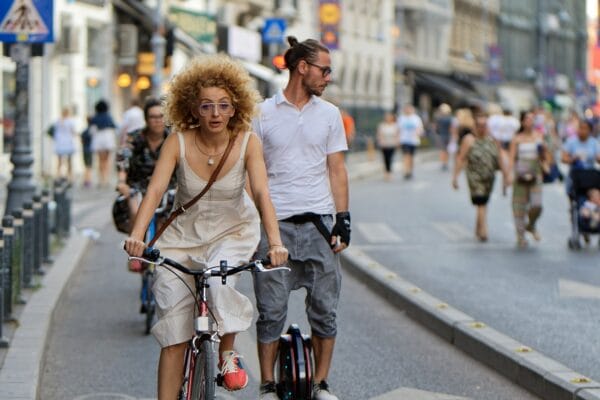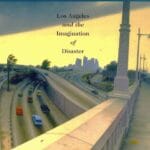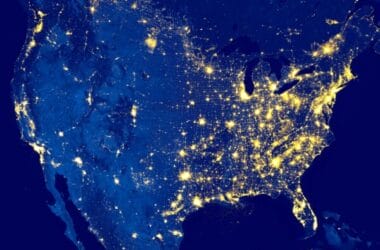

Subscribe to EcoJustice Radio:
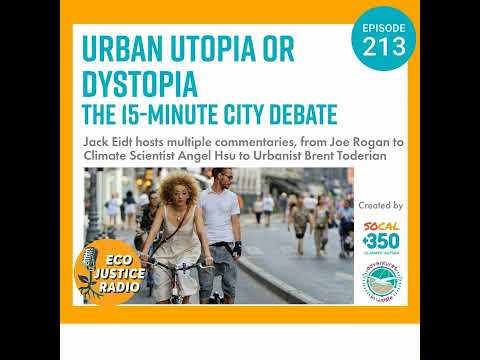
Watch this video on YouTube
15-Minute Cities: An Urbanist Revolution Facing Challenges
In this episode, we wander into the global 15-Minute City conversation that started with an urban planning vision of a world where schools, jobs, parks, and coffee shops are a short train or bike ride away. But amidst the green utopian dream, dystopian concerns have arisen. Voices like Joe Rogan [https://www.joerogan.com/] and Oh the Urbanity YouTube channel [https://www.youtube.com/c/OhTheUrbanity] weigh in, unpacking the fears of a society locked in by invisible and visible boundaries.
Let’s just say upfront that we are not arguing for making pandemic lockdowns permanent. The term 15-Minute City has become corrupted and greenwashed by globalist and corporatist entities like the World Economic Forum. Let’s not confuse the concept with the theory of a carbon-footprint lockdown and tolls and surcharges tied to anyone who strays beyond the 15-minute city neighborhood. And there are affordability questions, political and geographic realities that make this concept maybe a boutique suggestion for wealthy hipster hoods. Point taken. Nevertheless, what we aim to do with this show is investigate what do urban theorists really mean by a 15-minute city and it has nothing to do with locking you into your homes.
STORY: Tribute to the Late Urban History Provocateur Mike Davis
Moreover, we hear from the practitioners, Professor Carlos Moreno [https://www.moreno-web.net/] who founded the concept for Paris, Data Scientist Angel Hsu [https://sternstrategy.com/speakers/angel-hsu/] who illustrates how urban living and climate harsh realities collide, and Canadian urbanist city planner Brent Toderian [https://toderianurbanworks.com/brent/] lays out the grand design. Will the 15-minute city liberate or incarcerate? Listen as we dissect an urban blueprint for tomorrow.
STORY: Iannis Xenakis and the Notion of a Cosmic Utopia
For an extended interview and other benefits, become an EcoJustice Radio patron at https://www.patreon.com/ecojusticeradio
Paris is in the lead, which one might argue already is a 15-minute city for many, but the bike lanes and protected green spaces are new and revolutionary. Small and large cities and suburbs in the US are also building public transit and bike lanes, engaging in traffic calming streetscapes that favor walking, meandering, sitting, breathing.
And of course banning onerous single-family zones in order to increase densities and housing affordability – a key point – near these new transportation modes. Also, making commercial uses connected with where people live is also an important change to bring people closer to their favorite restaurant or tailor.
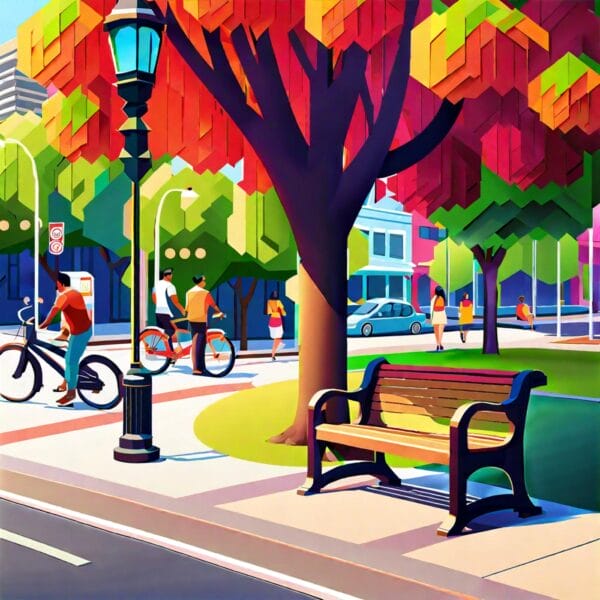
Yet, we also find the detractors, a growing chorus of people who argue that this is dystopian corporate social engineering, to trap us in our homes and charge us BIG MONEY to go out beyond the 15-minute limits – whether it’s carbon footprint personal surcharges, surveillance-activated pollution emissions tax zones, pay-to-drive toll, congestion pricing enforced via beeping transponders to keep you immobile or deducting funds at rush-hours in order to commute to your job. Entities like the World Economic Forum are invoked as concocting this scheme at the behest of elite oligarchs to keep you mired in bureaucracy and broke.
Well, toll roads and congestion pricing are very real and controversial transportation funding instruments, but these have absolutely zero to do with the 15-minute city concept. No one wants to trap you in your 15-minute Prison City – urban planners actually argue that the present freeway culture is a form of incarceration, keeping us separated via parkways and medians, and freedom to park in an expansive lot to shop at the big box, is a certain form of liberty that Patrick Henry never considered from atop his galloping horse, rallying his friends to the revolution.
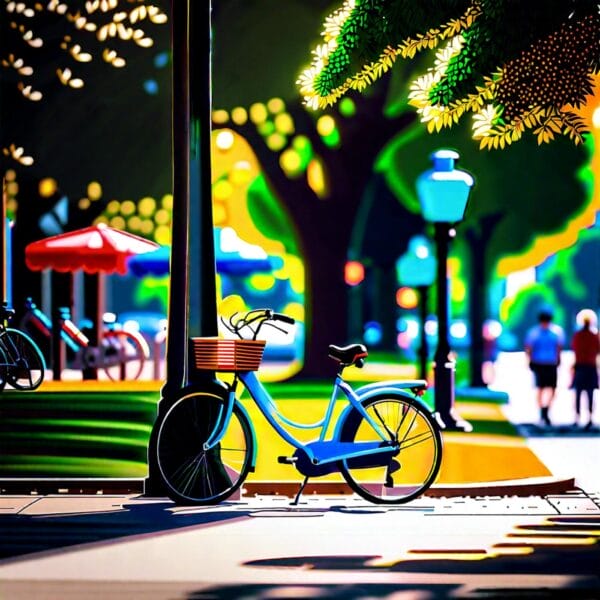
More Info:
15-Minute City with Carlos Moreno https://www.youtube.com/watch?v=TQ2f4sJVXAI
Angel Hsu https://www.ted.com/speakers/angel_hsu
Oh The Urbanity – Prison Cities https://youtu.be/DpXqY_j1m1U?si=Id1Rs9ryzvkfb0EO
An Evening with Brent Toderian https://youtu.be/fVVdmRGZ0hM?si=MwrPVxO-zfrRcP32
Jack Eidt is an urban planner, environmental journalist, and climate organizer, as well as award-winning fiction writer. He is Co-Founder of SoCal 350 Climate Action and Executive Producer of EcoJustice Radio. He is also Founder and Publisher of WilderUtopia [https://wilderutopia.com], a website dedicated to the question of Earth sustainability, finding society-level solutions to environmental, community, economic, transportation and energy needs.
Podcast Website: http://ecojusticeradio.org/
Podcast Blog: https://www.wilderutopia.com/category/ecojustice-radio/
Support the Podcast: Patreon https://www.patreon.com/ecojusticeradio
PayPal https://www.paypal.com/donate/?hosted_button_id=LBGXTRM292TFC&source=url
Executive Producer and Host: Jack Eidt
Engineer and Original Music: Blake Quake Beats
Episode 213
Photo credit: Pixabay
Updated 16 February 2025

